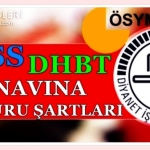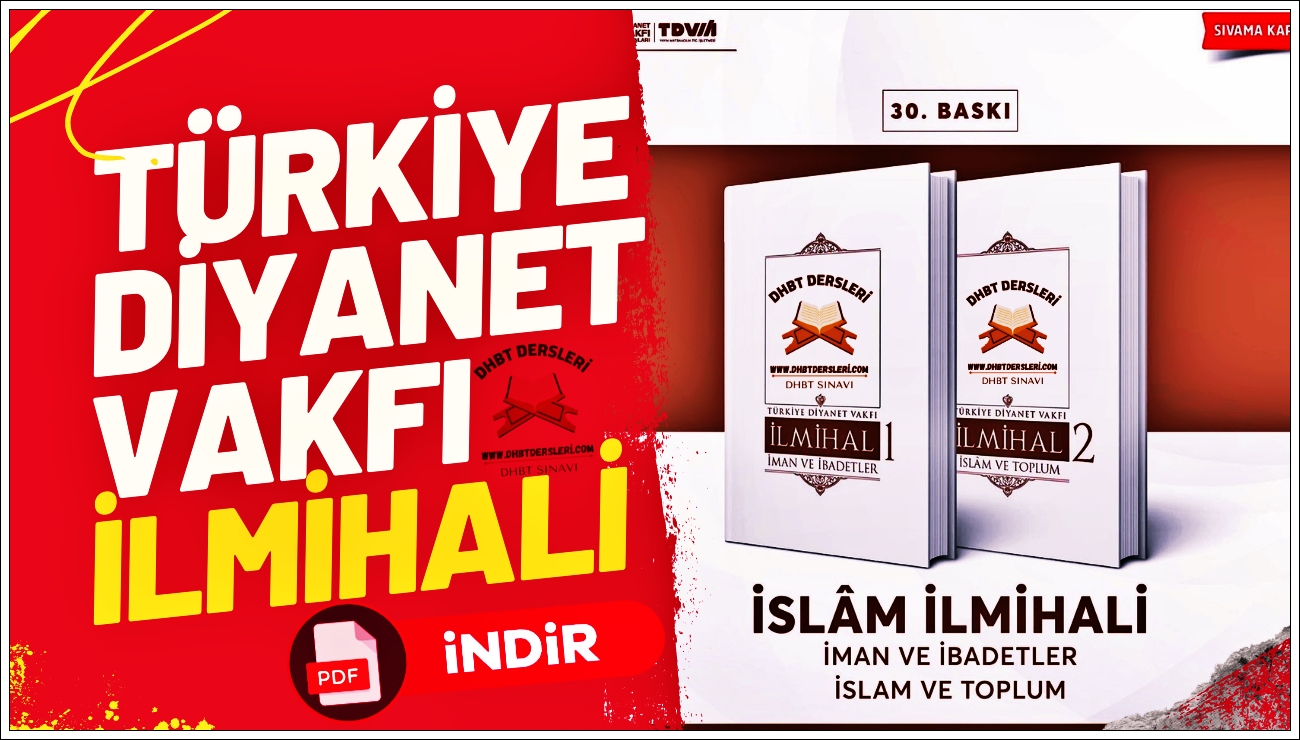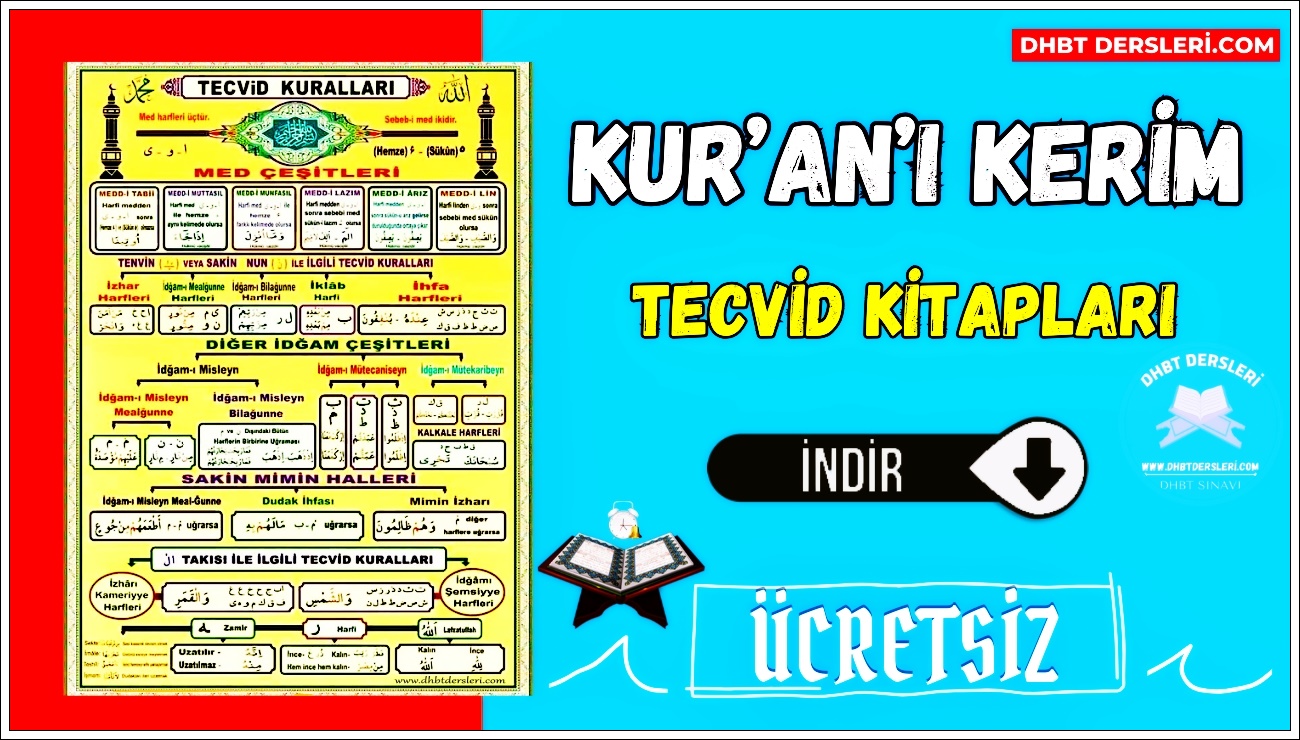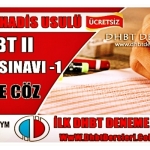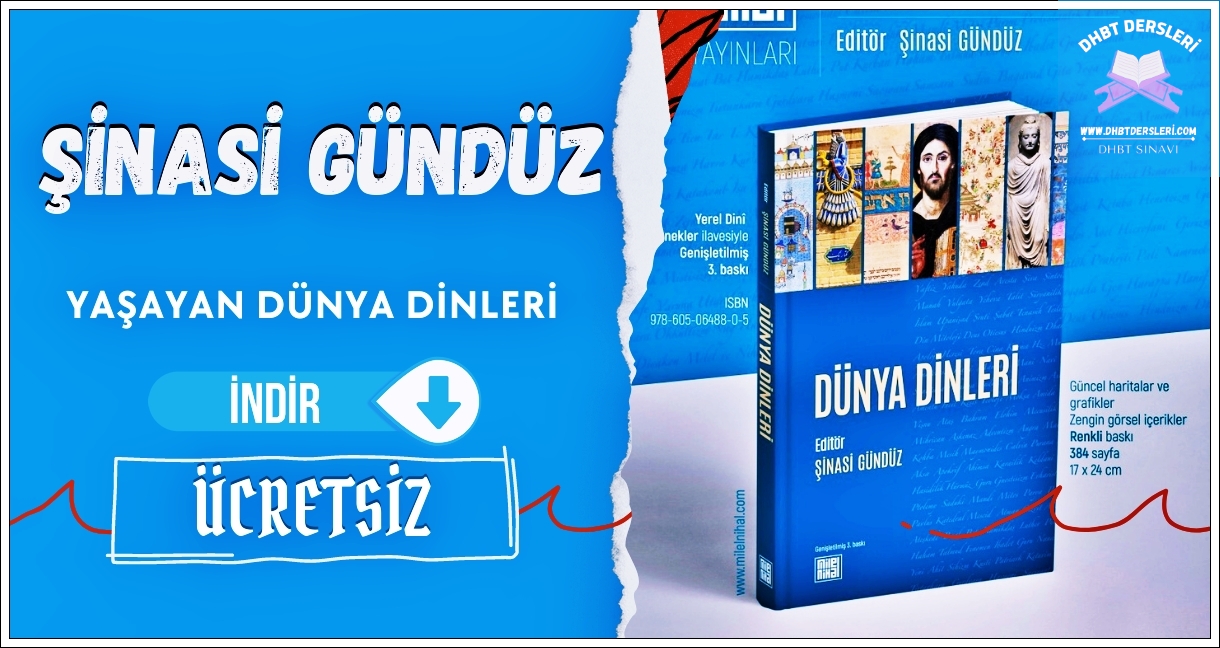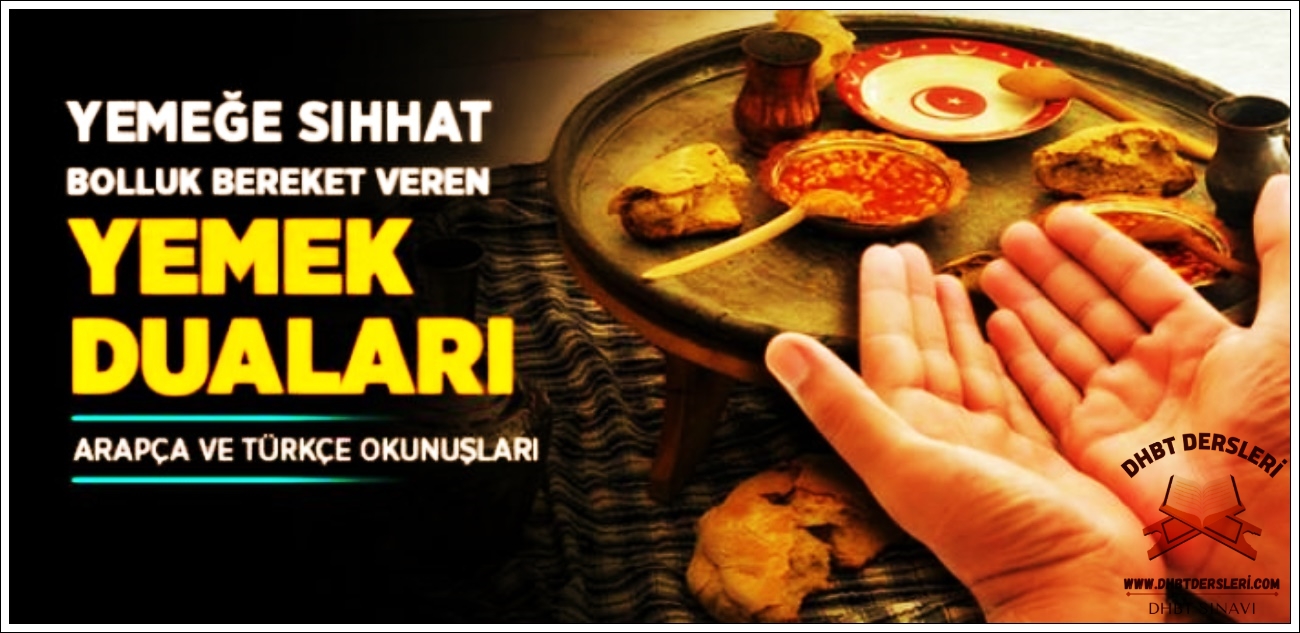Eighth Stage: Divine Aid
“Whenever Zachariah visited her in the sanctuary, he found her provided with food. He would ask: ‘O Mary, whence came this unto thee?’ She would answer: ‘It is from God; behold God grants sustenance unto whom He wills, beyond all reckoning.’ ” (Chapter 3, verse 37)
Yusuf accepted the position to take care of Mary’s needs after her sett lement at the temple, but he was going through quite a diffi cult time in performing his duty because of the drought and famine. Mary did not have many needs; however, in a famine, provision for even one person’s care is a big deal. Yusuf was trying to do as much as he could for Mary.
She was aware of this situation with her deep perception and tried to calm Yusuf thus: “Oh Yusuf, have good faith in God. For sure, God will sustain us.”18 (18 As reported by Ibn Ishaq.) Mary believed in God with marvelous sincerity, a belief appropriate only for her glorious lord. She had faith that indeed God somehow was going to help them. However, in order for her faith to actualize, every possible resource on hand had to vanish.
Well, it happened so. Zachariah came across something amazing during a routine visit, at a time when he was aware of the hardship of the situation and was dealing with the pain of not being able to aid:
“Whenever Zachariah visited her in the sanctuary, he found her provided with food. He would ask: ‘O Mary, whence came this unto thee?’ ”
There is no clear explanation in the Quran and the sunnah (the traditions and words of Prophet Muhammad) about the nature of this provision, as to where it came from and exactly what it was, but the scholars have expressed their opinions.
An early commentator, Zamahshari, in his commentary of this verse, says: “Her sustenance was coming from heaven, she did not have any milk from her mother, but she found beside her winter fruits during summer and summer fruits during winter.” Almost all the second generation of scholars and the first commentators say similar things. On the other hand, Maragi and some other scholars reject this interpretation and say that these were not heavenly foods but normal foods, nothing miraculous. These say that Zachariah’s amazement was in how Mary received them, especially in the
time of famine.
It is not so important from our perspective to know what this provision was and where it came from. If this detail would have added to the Quran’s message in this story, God no doubt would have explained the nature and source of this provision just as He described other parts of the story in detail.
It is simply not strange at all for God to send provisions from Himself to Mary, who would be the recipient of another miracle – to have a baby without a father. There is one thing we know for sure, and that is that this was an extraordinary situation. We know this provision came to her without any eff ort on her part, and there must be something extraordinary about what she received. There cannot be another explanation for Zachariah’s amazement. Evidently, there was something amazing about the situation, and no one would be amazed at something ordinary.
Here is the essential lesson to take from this: God uses all means to help people who devote their lives to Him. They will fi nd His help whenever their strength diminishes and they go through hard times. God’s help reaches from the first of mankind to the last, as long as their goals, intentions, and methods are appropriate. Examples are seen in the help provided for Noah against his tribe, Salih and Lot against their transgressing tribes, Abraham against Nimrod, Moses against the pharaoh, the People of the Cave against Diocletian, and the last messenger against the nonbelievers.
These are just a few examples. By giving these examples in the Quran, God Almighty tells the believers that He will aid them at all times and conditions against the unbelievers who are following the legacy of the pharaoh, Nimrod, and tribes of Noah and Lot. However, it is necessary to meet certain conditions to receive this aid. We see these conditions clearly in
these exemplary stories in the Quran. Thus, Mary was a devout person who deserved the divine aid by her faith, good deeds, patience, and perseverance.“God grants sustenance unto whom He wills, beyond all reckoning.” (Chapter 3, verse 37)
It is not right to restrict an understanding of this divine sustenance to provision or food only. This sustenance comes in diff erent forms: it was given to some as prophethood, to some it is given as knowledge, to some as wisdom, to some as wealth, or governance, or power, or patience and success, or heroic feats and honor. Sometimes, a person will even receive all these gifts if he fulfi lls all the conditions and really deserves them. God gives all these resources and more to the ones who work for His sake, consecrating and being consecrated.
They are for those who struggle by their hearts, minds, and souls; these people can benefi t from this “open account” that is without any limit to its riches. Whoever is surprised about the food – whose delight is momentary – that was given to Mary should be equally amazed at the other gifts given to her, including guidance, sincerity, wisdom, steadfastness, determination, strength, perception, and the miracle of procreation. These blessings are not like food or drink; they are more valuable and long-lasting.
Mary was given a son without the aid of a father, and she – as a woman alone in her travails – passed tests heavier than the weight of mountains. The most honorable and chaste woman of her time was subjected to the lowest slanders her own people could off er. Was the patience and perseverance she was given to withstand this tremendous test any less incredible a gift than the food she was given?
Why has the Islamic scholarly tradition for centuries neglected this crucial point instead of wasting time discussing the quantity and the quality of the “sustenance” whose benefi ts are minor in comparison?
Indeed, “God grants sustenance unto whom He wills, beyond all reckoning” (chapter 3, verse 37), just like He gives wisdom, faith, patience, perseverance, and insight. This sustenance actually was the start of another process as part of the divine plan, which led toward rewarding the family of Zachariah with the gift of John the Baptist, known to Muslims as Yahya, for their services.
Reward To The Gardener
“In that context, Zachariah prayed unto his Sustainer, saying: ‘O my Sustainer! Bestow upon me [too], out of Thy grace, the gift of goodly off spring; for Thou, indeed, hearest all prayer.’ ” (Chapter 3, verse 38)
Zachariah was fi lled with the satisfaction of accomplishing his mission of taking care of the precious fl ower and returning her to her owner. “Whenever Zachariah visited her in the sanctuary, he found her provided with food. He would ask: ‘O Mary, whence came this unto thee?’ ”
This help, which is the measure of the sincerity between the Sustainer and His devout follower, was the sign of Mary’s value in God’s regard. There was turmoil stirring within the heart of Zachariah as he witnessed this situation. Questions in his mind came like storms. Emotions he had not felt before began to fi ll his heart from the void this event opened there. He desired so much to have a devout child like Mary now. He had always admired her and acknowledged her. After witnessing the divine aid to her, his admiration turns into a desire and wish.
Now he was feeling sharper than ever the pain of being childless. This feeling was not new for him; it had been there since he took the responsibility for Mary’s care. It seemed impossible for his wish to become reality, because he was very old and his wife was barren. Therefore, he tried to satisfy his longing for a child by focusing all his att ention on her care. The present reality of life was standing like a mighty mountain in front of the desires of Zachariah’s family.
But then, what he witnessed in God’s extraordinary care of Mary was like a new horizon opening before him. The ashes of his old desire for a child were reignited and his heart was kindled all aglow. The One who sustained Mary in such a way despite the circumstances – would not the same One open the ways for Zachariah to have a child?
Wouldn’t He clear their handicaps of old age out of the way? As the Quran describes, when he, Zachariah, saw the blessings given to Mary, he opened his hands to pray. “In that context, Zachariah prayed unto his Sustainer, saying: ‘O my Sustainer! Bestow upon me [too], out of Thy grace, the gift of goodly off spring; for Thou, indeed, hearest all prayer.’ ” (Chapter 3, verse 38)
Zachariah made this prayer while witnessing the sustenance provided to Mary, which was far out of the ordinary, so he could be blessed by a child out of the ordinary fashion too. It is understood from the verse that what brought him to his Lord was that blessing given to Mary. For a long time, the Sustainer’s protection over Mary, whom he admired, by her faith, righteousness, and morality, was the kindling of this desire in him for a devout child.
When Zachariah saw Mary in that circumstance, his comprehension was lifted above this world of events and matt ers that work in chains of cause and eff ects. He was now face-toface with this forceful example of God’s mercy, power, protection, care, and aid. He made this prayer from the bott om of his heart as he paused in astonishment. “O my Sustainer! Bestow upon me [too], out of Thy grace, the gift of goodly off spring; for Thou, indeed, hearest all prayer.”
Yes, God is all-hearing and all-knowing. He knew Zachariah’s prayer and his desire for a child was out of devotion, and so he too could devote for His sake, not for worldly desires. He knew that Zachariah did not want a child for reasons like continuing his family name. He knew that his desire was to enjoy the contentment of giving God a gift and great sacrifi ce. This prayer was going to be accepted and the gardener was to be rewarded. Not long after this: “Thereupon, as he stood praying in the sanctuary, the angels called out unto him: ‘God sends thee the glad tiding of [the birth of] John, who shall confi rm the truth of a word from God, and [shall be] outstanding among men, and utt erly chaste, and a prophet from among the righteous.’ ” (Chapter 2, verse 39)
The good news was given: the birth of John (Yahya). He was the reward for Zachariah’s services. This good news to Zachariah would serve another purpose as well: an atmosphere was being prepared, after Anna and Mary, for the last generation of this devotional process, Jesus. One of John’s features was, as mentioned in Quran, that he was to “confi rm the truth of a word from God” – to confi rm the truth of Jesus. When Zachariah had made his prayer, he was in the transcendental state of one witnessing a miracle and gett ing a glimpse into powers beyond the realm of the material world. But upon receiving the reply right away that his request will be granted, he went back to the world of reasons – the world of logic, laws, and material things. In this world, it appears impossible for Zachariah’s request to become a reality. He asked with the bewilderment of one locked up in the world of logic:
“[Zachariah] exclaimed: ‘O my Sustainer! How can I have a son when old age has already overtaken me, and my wife is barren?’ ” (Chapter 4, verse 40)
He asked this even though it was he who asked for this exact gift a litt le earlier. However, as we have mentioned earlier, there is a huge diff erence between the spiritual state of when he made this prayer and now when he asked this question. He made his prayer by his heart and faith; however, he asked this subsequent question by his logic and mind. This question was only an example of the ancient contest and clash between these two worlds. However, Zachariah got his wish by putt ing his mind and logic into the hands of his faith. This was a simple process:
He saw Mary in that condition, and made a comparison right there between his and her situation. After this comparison, he came to a conclusion from the fact that his position resembles hers and he could have a similar outcome. Then he presented his case from his heart where his faith is the ruler. His Lord approved of it and further presented Zachariah with blessings from his Sustainer. But now he asks as he turns the process of perception by believing into the perception by logic:
“How can I have a son?” The answer he got from his Sustainer was to speak to his faith, not to his mind: “Thus it is: God does what He wills.”
Yes as you see, the answer is short and simple: “Thus it is.” And then, att ention is drawn to one att ribute of God: “God does what He wills.” Isn’t it so that He is the creator, allpowerful?
Even though Zachariah’s heart believed in this, his logic seemed not to submit so easily. His mind needed to be convinced. For this, proofs, documents, and things of those sorts were needed. Zachariah turned to his Sustainer. “[Zachariah] prayed: ‘O my Sustainer! Appoint a sign for me!’ Said [the angel]: ‘Thy sign shall be that for three days thou wilt not speak unto men other than by gestures. And remember thy Sustainer unceasingly, and extol His limitless glory by night and by day.’ ” (Chapter 3, verse 41)
The uniqueness of Mary
After this verse, the subject changes all of a sudden and returns to the main subject: “And lo! The angels said: “O! Behold, God has elected thee and made thee pure, and raised thee above all the women of the world.” (Chapter 3, verse 43) At first it seems like there is no relation between these two verses. Nevertheless, after concentrating on them carefully, one can see that there are some att ributes used for Mary, a woman, that are not used for Zachariah; for example, “elected,” “made pure,” “and raised above.” There’s no doubt that there were diff erences that made her unique. In our opinion it is the diff erence of submission between the two elected and devout ones, Zachariah and Mary, that comes into play fi rst. The angels called unto her just like Zachariah when they said, “O! Behold, God sends thee the glad tiding, through a word from Him.” She asked how it is that when no hand of man touched her. In return, the same answer given to Zachariah was given to her. Let us consider these verses:
“Lo! The angels said: ‘O! Behold, God sends thee the glad tiding, through a word from Him, [of a son] who shall become known as the Christ Jesus, son of Mary, of great honor in this world and in the life to come, and [shall be] of those who are drawn near unto God. Said she: ‘O my Sustainer! How can I have a son when no man has ever touched me?’
[The angel] answered: ‘Thus it is: God creates what He wills: when He wills a thing to be, He but says unto it, ‘Be’ – and it is.’ ” (Chapter 3, verses 45-47)
What is said to Zachariah and Mary? The replies to each are in almost the same format. However, there is a diff erence. While Zachariah asks for a sign that he will have a son, Mary on the other hand does not need to ask for any sign – even though she faces a more challenging situation while knowing herself that no man has touched her. She accepts this, saying “Thus it is,” and submits without condition to the divine will. Zachariah received the same answer, but could not help asking for a sign. Thus for this reason, Mary was named the trustworthy (“siddiq”) in chapter 5, verse 57, and became one of the two women (the other is the wife of pharaoh) presented as the model for the women of the world. In chapter 66, Mary is also called among those “ganeteen,” truly devoted to her Sustainer. “Who accepted the truth of her Sustainer’s words, – and [thus,] of His revelations – and was one of the truly devout.” (Chapter 66, verse 12)
Neither “trustworthiness” nor “being truly devout” are the att ributes that solely belong to messengers and prophets. Whoever exhibits these and other similar att ributes will become eligible candidates to be divinely selected for a post. The caretaker of the devotee, Zachariah, was rewarded by the birth of John the Baptist. In this occurrence, the example of the message points to the sacrifi cing members of those working for God’s movement. Both the reward and the rewarded are also awarded martyrdom, which is the highest honor bestowed at the end of life. These two helpers in the process of devotion dedicated their lives to their Sustainer, and they were rewarded by martyrdom.
In this process of devotion, the role of John is no less than that of his father, Zachariah. Zachariah assisted the generation of the devotion by raising Mary; John had the duty of preparing the atmosphere for the third generation. John lived for the rule of his faith and was martyred by the despot ruling leaders of his time, who did not want to obey God’s orders, after he was unjustly imprisoned and eventually killed. During this phase of devotion, John is not the only sacrifi ce. As mentioned earlier, his father Zachariah also joined the ranks of people who are sacrifi ced for the sake of God after his son was killed. All these occurrences might seem like a tragedy for the family of Zachariah, but in fact it is fi lled with the greatest of awards. They earned martyrdom by their eff orts in the process of devotion.


